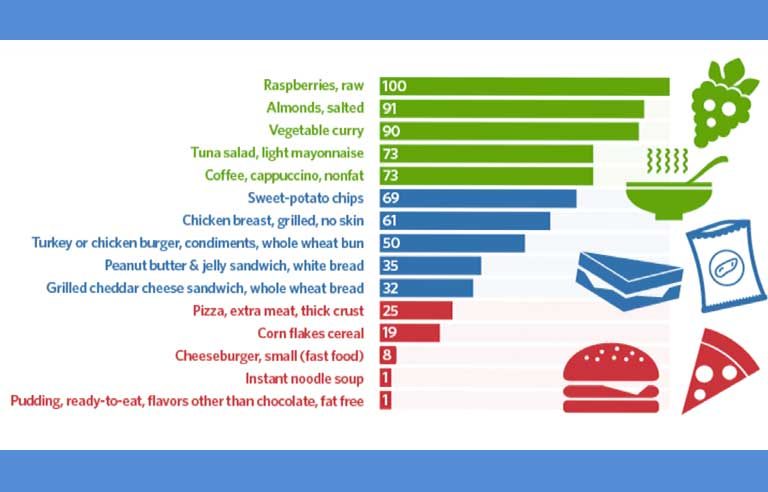Medford, MA — Quick: Which is a healthier snack, an apple or a slice of apple pie?
OK, that’s an easy one, but let’s say you want to choose between sure fruits and vegetables. Or perhaps a nut or legume. A new tool from Tufts University can help.
Food Compass is a nutrient profiling system that appears at greater than 8,000 foods’ vitamins, ingredients, processing characteristics and additives, among different characteristics, and grades their healthfulness on a scale of 1 to 100.
Specialists encourage common consumption of foods which have a score of 70-100. Foods with scores of 31-69 be eaten moderately, and those in the 1-30 score range should be minimized.
Different score examples:
- Salted almonds (91)
- Tuna salad with light mayonnaise (73)
- Nonfat cappuccino (73)
- Grilled, skinless chicken breast (61)
- Turkey or chicken burger with condiments on whole wheat bun (50)
- Peanut butter and jelly sandwich with white bread (35)
- Thick-crust pizza with extra meat (25)
- Corn flakes cereal (19)
- Small, fast-food cheeseburger (8)
Raw raspberries scored a perfect 100, while non-chocolate, fat-free pudding earned a rating of 1. The average score for sugar-sweetened sodas is 27.6, compared with 67 for 100% fruit or vegetable juices.
“Once you get beyond ‘eat your veggies, avoid soda,’ the public is pretty confused about how to identify healthier choices in the grocery store, cafeteria and restaurant,” Dariush Mozaffarian, lead study author and dean of the Tufts Friedman School of Nutrition Science and Policy, said in a press launch. “Consumers, policymakers and even industry are looking for simple tools to guide everyone toward healthier choices.”
Further details of the tool were explored in a study published online Oct. 14 in the journal Nature Food.



